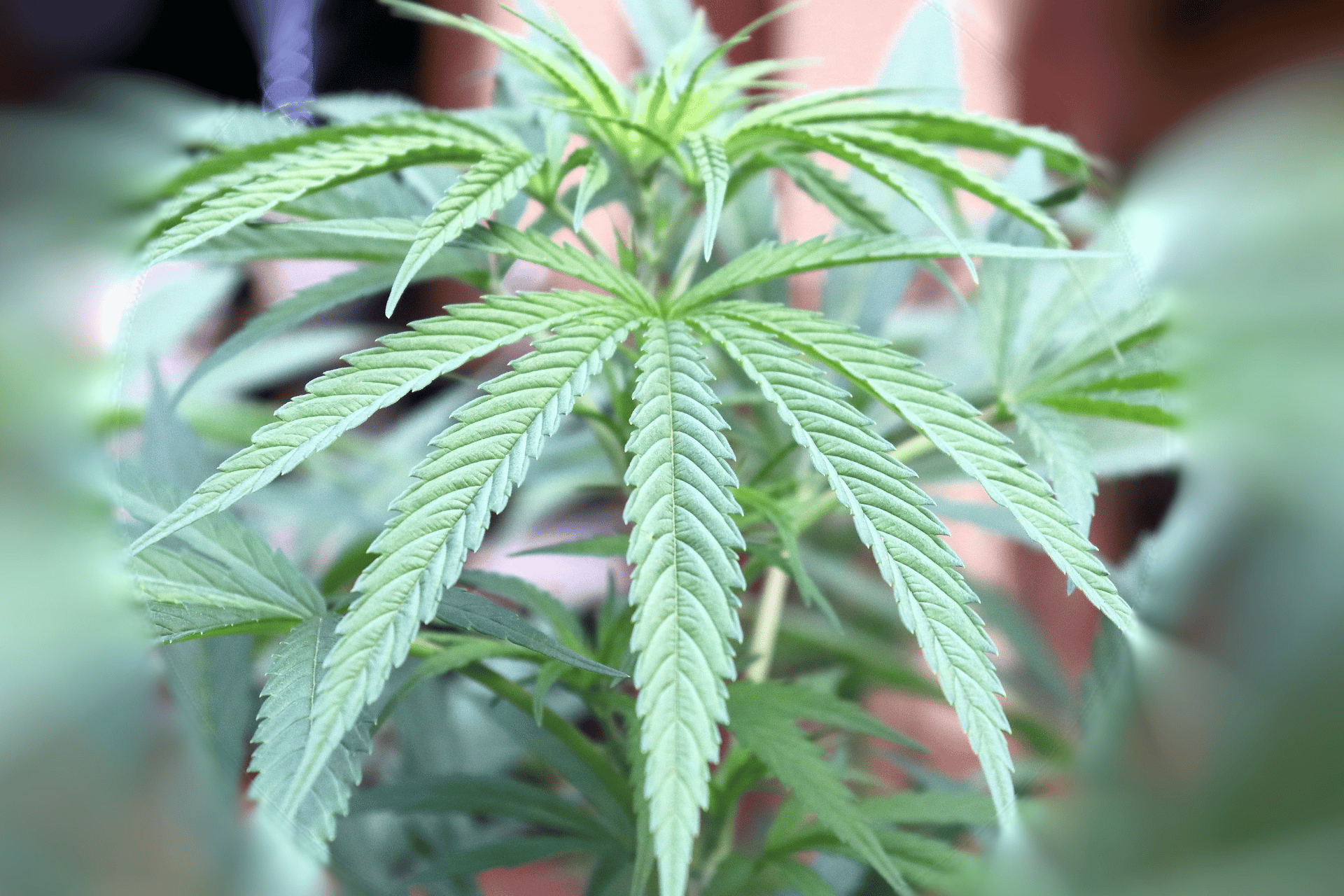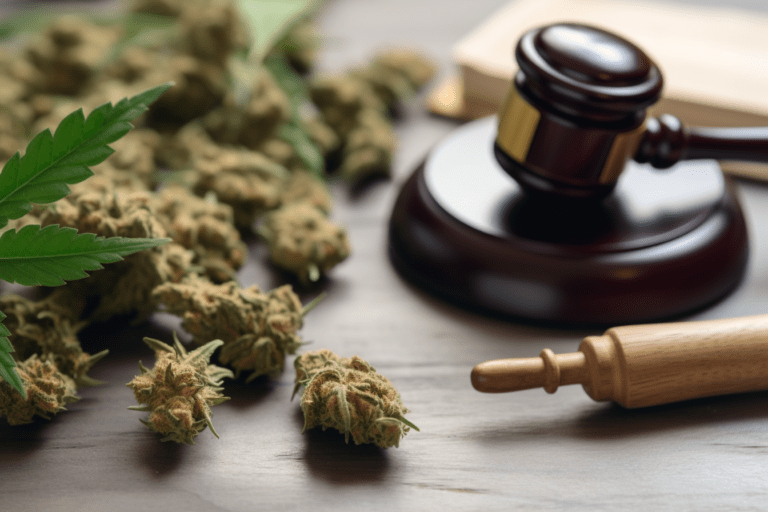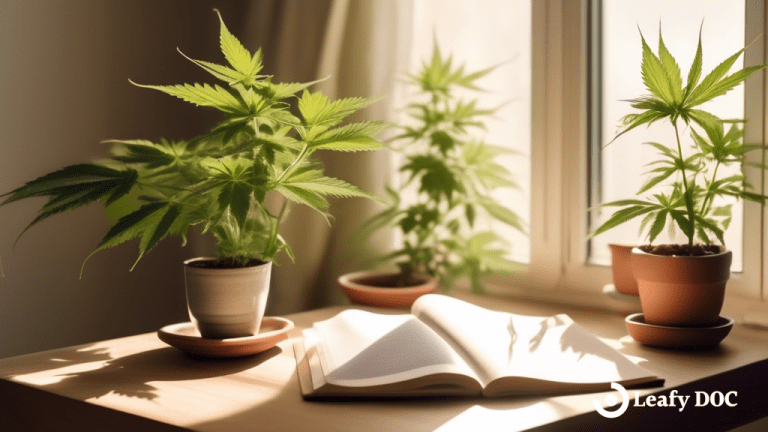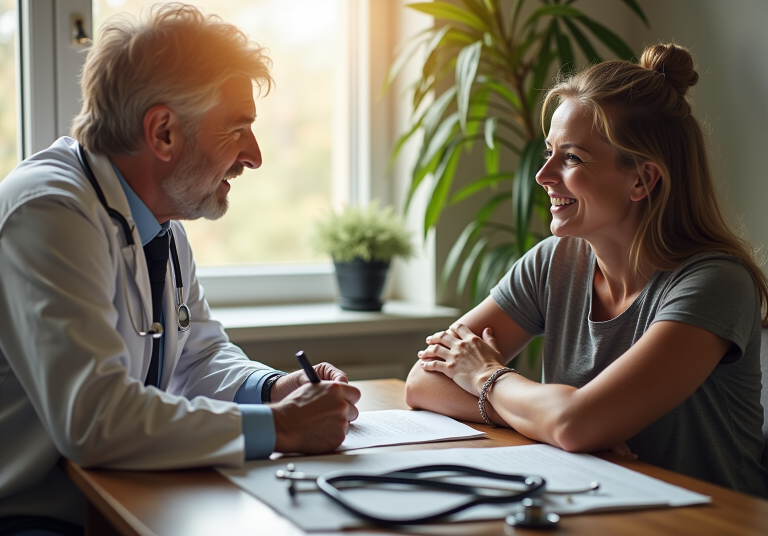Does Weed Help with Anxiety?
by Haley Mills · January 2, 2023
Looking for the best weed for anxiety? Check out our top picks for strains that can help calm your nerves and ease your anxiety.

Anxiety is the most common mental disorder in the United States, affecting approximately forty million adults nationwide. This number reflects about eighteen percent of the population.
Anxiety is a relatively treatable condition; however, only around thirty-seven percent of patients seek treatment. Anxiety disorders, including social phobia, stem from inherited traits, brain structures that affect the fear response, life events, and environmental factors.
Five Primary Types of Anxiety Disorders
Generalized Anxiety Disorder is characterized by chronic stress, tension, and worry when there is little or nothing to provoke it.
Obsessive-Compulsive disorder is characterized by recurrent and unwanted thoughts or obsessions and repetitive behaviors or compulsions.
Panic Disorder is caused by unexpected or repeated episodes of intense fear (panic attack) and other physical symptoms, such as chest tightness, racing heart rate, or gastrointestinal issues.
Post-Traumatic Stress Disorder occurs after someone is exposed to a traumatic event in which physical or emotional harm occurred or was threatened. This includes sexual assault, military combat, and vehicle accidents.
Social anxiety disorder, or social phobia, causes an intense fear of being evaluated or judged by others in social settings. This persistent fear can affect daily life, including work, school, friends, family, errands, doctor visits, and more. Although it can feel beyond control, social anxiety and other anxiety disorders are treatable. It is the most common type of anxiety disorder. If treatment isn’t pursued, it could lead to disruptions in everyday life and, in severe cases, result in alcohol and cannabis dependence as a coping mechanism.
Symptoms of Anxiety Disorders
There are many anxiety disorder symptoms, and the frequency of their occurrence depends upon the person and whether they have attempted a potential treatment option. The symptoms of social anxiety can be broken down into three categories: physical, cognitive, and behavioral effects.
Below, we provide examples of the signs and symptoms of Social Anxiety Disorder:
Physical effects– nausea, rapid heartbeat, sweating, flushing, shaky, dizziness, light-headed, chronic pain
Cognitive effects include feeling out of control, high stress, self-consciousness, paranoia, and unsettled or overwhelmed.
Behavioral effects include:
- Difficulty managing pressure.
- Avoiding eye contact.
- Fear of social interaction with strangers or any other unknown social situations.
- Making impulsive or irrational decisions.
- Anxiety-induced panic disorder and subsequent panic attacks.
- Freezing during public speaking.
Living with Social Anxiety
The intensity of an anxiety disorder varies greatly depending on the individual and their environment.
Social Anxiety patients may experience emotional stress during ordinary activities or anticipatory anxiety before certain events, such as:
- Social encounters or introductions with strangers
- Speaking with a boss or leader
- Visiting someone’s home
- Shopping, completing transactions
- Running errands
- Doctor visits
- If they become the center of attention
- Formal or Public speaking
- If they are teased, bullied, or harassed
- During romantic situations
- When trying to make friends
Conventional Treatments for Social Anxiety
The cognitive-behavioral, group, and exposure therapy, along with an oral dose of prescription medication, are two anxiety treatments proven to significantly affect the symptoms of social anxiety disorder.
The different types of therapy for social anxiety disorder include:
- Group therapy allows a person with an anxiety disorder to learn social skills from others going through similar situations in a safe space. Participating in group activities with other people with anxiety, obsessive-compulsive disorder, or other mental disorder can make one feel less alone and more understood.
- Cognitive behavioral therapy, or talk therapy, is the most common way of treating anxiety for those with disorders. During talk therapy, the patient with a social anxiety disorder will meet regularly with a therapist to self-report measures of behaviors, emotions, and thoughts during everyday life.
- This will encourage and assist the individual in recognizing and addressing intrusive, harmful, or false ideas. Cognitive behavior therapy can change thought patterns and help the patient see things more positively.
- Exposure therapy involves easing a patient with anxiety disorder into social settings a little bit at a time. The individual may start small and chat regularly with a therapist while emerging into society at a comfortable pace as not to make anxiety worse and have to start over. This category includes yoga, meditation, exercise, and acupuncture. These holistic therapies are popular for people looking to increase blood flow, change their lifestyles and build healthier habits. For some, they can assist in coping with mental disorders. Some alternative solutions combined with medication or meeting with a therapist could successfully result in a significant decrease in anxiety and build a healthy, happy, and productive lifestyle.
Current Prescription Medications for Anxiety Disorders
There are five categories of anti anxiety medications used to treat anxiety. They are antidepressants, buspirone, benzodiazepines, hydroxyzine, and beta-blockers. Systematic review proves that each category includes certain drugs with risk factors and potential health benefits administered acutely.
Selective serotonin reuptake inhibitors are commonly prescribed to treat anxiety disorder. The only SSRIs that are currently FDA-approved for this condition are Zoloft and Paxil. Extended-release venlafaxine is a serotonin and norepinephrine reuptake inhibitor that is also FDA-approved to treat anxiety disorder.
Patients using SSRIs and SNRIs may experience the following side effects:
- Nausea
- Drowsiness
- Weight gain
- Headache
- Dizziness
- Sleeplessness
- Sexual difficulties
Can medical marijuana help with anxiety?
Medical marijuana for an anxiety disorder typically has a more considerable amount of CBD, and lower levels of THC, depending on the type, can induce anxiety and panic. Safe access to medical marijuana strains with the combination of cannabidiol CBD concentrations could provide health benefits without the risks.
THC and CBD can improve sleep quality and duration in anxiety disorders for medical cannabis users. Recent clinical trials tell us that medical cannabis may help reduce social anxiety in the short term and help you sleep better. However, before using marijuana to relieve anxiety, we recommend speaking with your doctor to be safe.
How Cannabinoids Affect Anxiety
Delta 9- tetrahydrocannabinol (THC), the component in cannabis responsible for the psychoactive effect, binds more substantially to the CB1 receptor than cannabidiol; however, it has been known to increase anxiety for some people when larger doses are taken. New medical marijuana patients should pick high CBD to low THC ratios or possibly avoid THC altogether to lessen the probability of THC-induced anxiety. CBD has been shown to reduce the short-term stress caused by THC.
Cannabis researchers believe that CBD increases anandamide, which directly increases serotonin activity and helps ease fear and relieve stress. When paired with CBD, it acts similarly to prescription serotonin and norepinephrine reuptake inhibitors (SNRIs) by relieving feelings of depression and anxiety.
Medical Research to support MMJ
An American Psychiatric Press study stated the following concerning their clinical data on the link between marijuana use disorders and making anxiety symptoms worse:
“Although social anxiety disorder is related to CUD, it has a stronger association with dependence on the cannabis sativa plant than abuse. This link is not better accounted for by other psychopathology in this study. SAD onset before CUD for the majority of CUD-SAD respondents. Importantly, the co-occurrence of these two disorders appears to result in greater impairment and distress than either disorder alone.”
Medically reviewed cannabis research with informed consent from healthy subjects with anxiety and a placebo group in Italy suggested that:
The increasing prevalence rate of cannabis consumption and the recent debate on the legal status of marijuana use suggest a careful examination of risk and protective factors for problematic use of cannabis. The present study adds to the current knowledge on this issue, showing that social anxiety symptoms negatively associate with complex cannabis involvement among young adults. Specifically, the findings show that the negative relationship between social anxiety and problematic use of cannabis is fully mediated by negative expectations about the effects of cannabis consumption. “
A study published in 2011 by Neuropsychopharmacology tested the effects of orally ingesting CBD capsules before presenting study participants with a public speaking stress test. Participants received a dose of CBD or placebo before participating in the trial. They participated in a survey analyzing their stress levels and were monitored for changes in blood pressure, heart rate, and skin conductance. The patients treated with CBD had significantly lowered anxiety and cognitive impairment compared to those with the placebo.
Anxiety as a Qualifying Condition
In these five states, patients with anxiety disorders qualify for a medical marijuana card with a prescription from a licensed physician. However, PTSD is another form of anxiety recognized in most medically legal states. We recommend speaking with your doctor for more information on your specific condition.
- Pennsylvania
- New Jersey
- Florida
- North Dakota
- California
Top 5 Medical Strains for Anxiety Disorder
When it comes to the best weed for anxiety, there are many options that could help manage the symptoms. Here are a few that are regularly recommended to help patients with their symptoms:
Critical Cure is an Indica-dominant cannabis strain that has a lovely balance of CBD and THC percentages at around eight percent each. It’s quick acting and long-lasting with mild psychoactive effects.
Ringo’s Gift is a high CBD strain that has an average CBD-to-THC ratio of 13:1, but strains as high as 20:1 have been cultivated. Users boast relief for stress, anxiety, and insomnia among other ailments.
ACDC is a strain with fourteen percent CBD. It has very little THC, so there won’t be a high associated with this one. It’s a great one for morning or evening and is sure to leave you happy, relaxed, and pain free.
Hawaiian Haze is produced by Botany Farms and is nearly THC free. This tropical strain will promote energy, creativity, and focus with almost 20 percent CBD. Cannabidiol CBD maintains a sense of calm without the psychoactive effects brought on by THC, making it useful in social situations.
Frisian Dew is a nearly perfect 50/50 hybrid with a low THC content. This strain is helpful in social settings because it assists in staying present and letting your creativity shine through to come up with interesting questions and keep the conversation going with others.
5 Best CBD Products for Managing Anxiety
- CBDfx Calming Tincture
- Papa & Barkley Releaf Drops
- Lazarus Naturals High Potency Tincture
- Charlotte’s Web CBD Oil
- Kanibi CBD Pure Isolate (Skittles flavor)
Final Thoughts
Anxiety disorder is not a condition to leave untreated. Left to its own devices, anxiety can be a debilitating condition that negatively impacts many aspects of life along with your mental health. It’s not uncommon for someone with a generalized anxiety disorder to develop depression due to social withdrawal. In extreme cases, some patients have developed avoidant personality disorder and other severe mood disorders or leaned on unhealthy drug abuse.
Nearly fifty percent of those diagnosed with depression are also diagnosed with an anxiety disorder. This can lead to substance abuse disorders in severe cases without proper treatment. Many high-CBD strains and other products may be helpful as an alternative therapy for anxiety disorders.
Last Updated: August 8, 2024
Get Approved for Your Medical Marijuana Card in Minutes!

Get Your Medical Card
Connect with a licensed physician online in minutes

Like This Article?
Share with your friends
Table of Contents
Keep Reading
-
Is Weed Legal In PA
Discover the current status of cannabis legalization in Pennsylvania. Get answers to frequently asked questions about weed laws, possession limits, and medical marijuana in PA. Learn more with Leafy DOC.
-
Effective Tips For Using Cannabis In Your Recovery Routine
Enhance your recovery journey with these effective cannabis tips! Discover the secrets to incorporating cannabis into your routine for optimal healing. Click here to unlock the power of cannabis in your recovery now!
-
5 Steps to Obtain Your Ohio Medical Marijuana Card Easily
Easily obtain your Ohio medical marijuanas card with our simple five-step guide.



